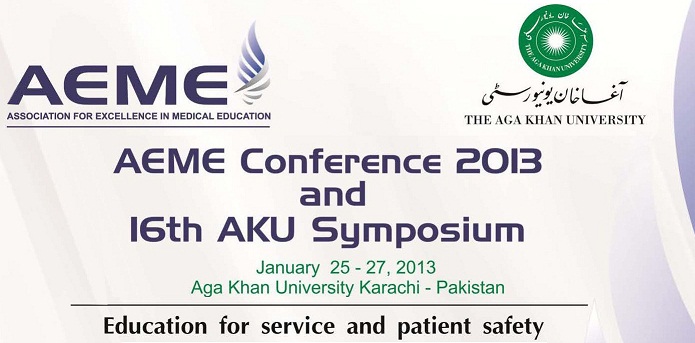Day 1 : Poster Presentations (Theme: Education for Service)
Education of doctors of the future
Location
Auditorium Pond Side
Start Date
26-1-2013 3:30 PM
Abstract
World is changing fast, rather has changed a lot and so is the landscape of healthcare globally. There is explosion of knowledge, with new diagnostic and interventional procedures. The profession must understand the important factors that are and will be influencing the demographic, technological, economic and societal changes that are hard to predict but dangerous to ignore. • While the impact of technology is hardest to predict the challenge is to innovate and adopt the possibilities already there in genomics, information and nanotechnology. • Future Medical Technology breakthroughs will build from incredible progress made in nanotechnology, biotechnology, computer, the information learned from deciphering the human Genome and other scientific and technical areas. Technology will undoubtedly guide our future healthcare decisions and we can even see now this practice, such as patient advice on You-Tube, e-clinics and doctors advising online communities. Doctors have to ensure that their patients are safe, are diagnosed efficiently, treated effectively and patient should be confident and familiar with those caring for them. Doctors will be facing difficult times with many new challenges coming in near future. • In this new era of fast changing demographics and technologic scenario the profession has to visualize the "change", to avoid problems in future. Hence there is need to change in professional attitudes to meet the new challenges by updating curriculum, Effective evaluation, Accreditation & Re-accreditation, C.P.D and Revalidation and appraisal. The profession must play a pivotal and proactive role in leading the changes, should impose its self-regulations, strict discipline conduct professional audit and should learn to establish better communication with their patients, public & media. The profession can remain a "Back Seat passenger" for the difficult journey ahead or it can take the wheel. Taking a wheel will require a change in the attitudes and will help in bringing positive changes rather than let others make decisions on legislature about the profession.
Education of doctors of the future
Auditorium Pond Side
World is changing fast, rather has changed a lot and so is the landscape of healthcare globally. There is explosion of knowledge, with new diagnostic and interventional procedures. The profession must understand the important factors that are and will be influencing the demographic, technological, economic and societal changes that are hard to predict but dangerous to ignore. • While the impact of technology is hardest to predict the challenge is to innovate and adopt the possibilities already there in genomics, information and nanotechnology. • Future Medical Technology breakthroughs will build from incredible progress made in nanotechnology, biotechnology, computer, the information learned from deciphering the human Genome and other scientific and technical areas. Technology will undoubtedly guide our future healthcare decisions and we can even see now this practice, such as patient advice on You-Tube, e-clinics and doctors advising online communities. Doctors have to ensure that their patients are safe, are diagnosed efficiently, treated effectively and patient should be confident and familiar with those caring for them. Doctors will be facing difficult times with many new challenges coming in near future. • In this new era of fast changing demographics and technologic scenario the profession has to visualize the "change", to avoid problems in future. Hence there is need to change in professional attitudes to meet the new challenges by updating curriculum, Effective evaluation, Accreditation & Re-accreditation, C.P.D and Revalidation and appraisal. The profession must play a pivotal and proactive role in leading the changes, should impose its self-regulations, strict discipline conduct professional audit and should learn to establish better communication with their patients, public & media. The profession can remain a "Back Seat passenger" for the difficult journey ahead or it can take the wheel. Taking a wheel will require a change in the attitudes and will help in bringing positive changes rather than let others make decisions on legislature about the profession.


